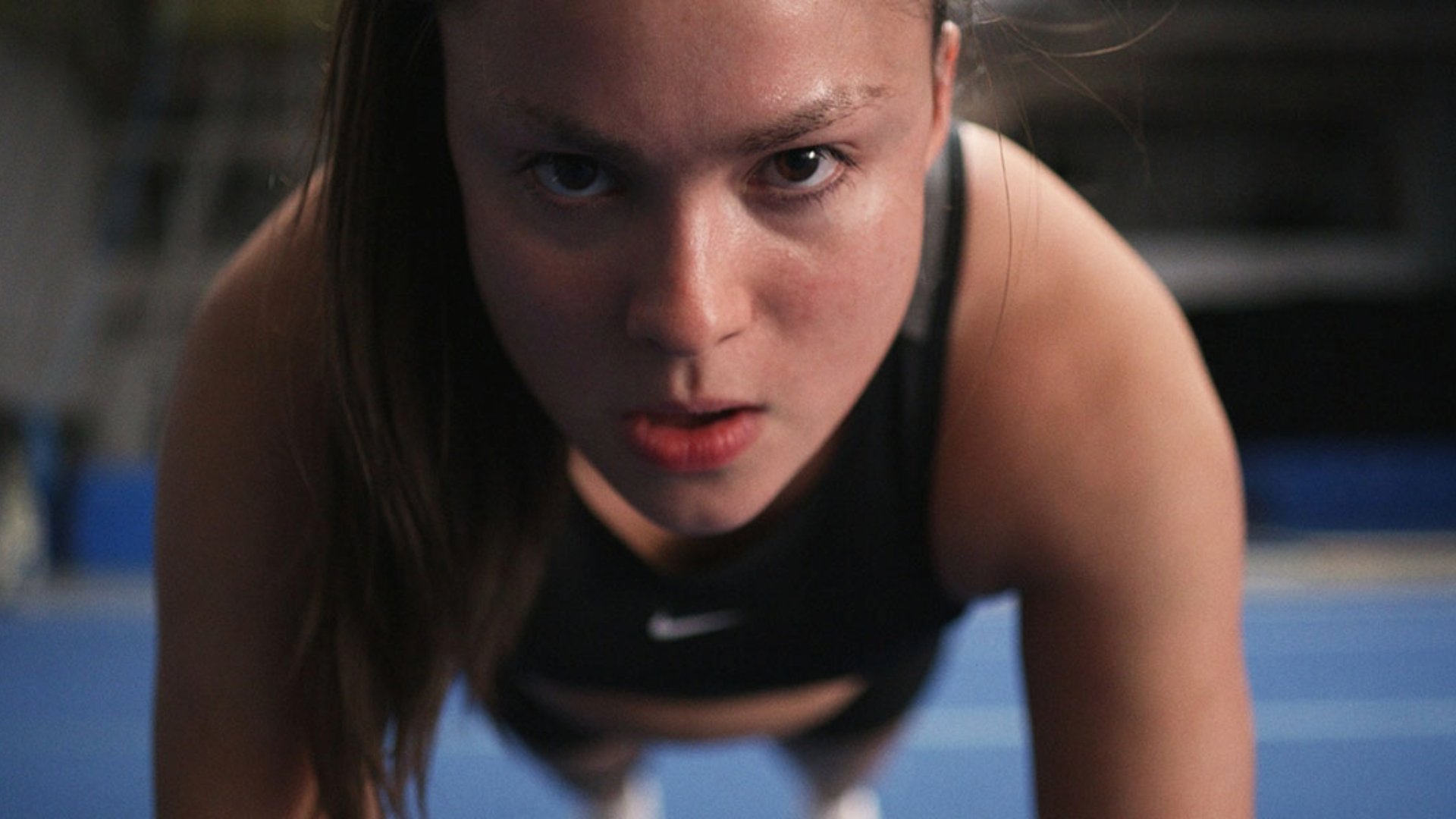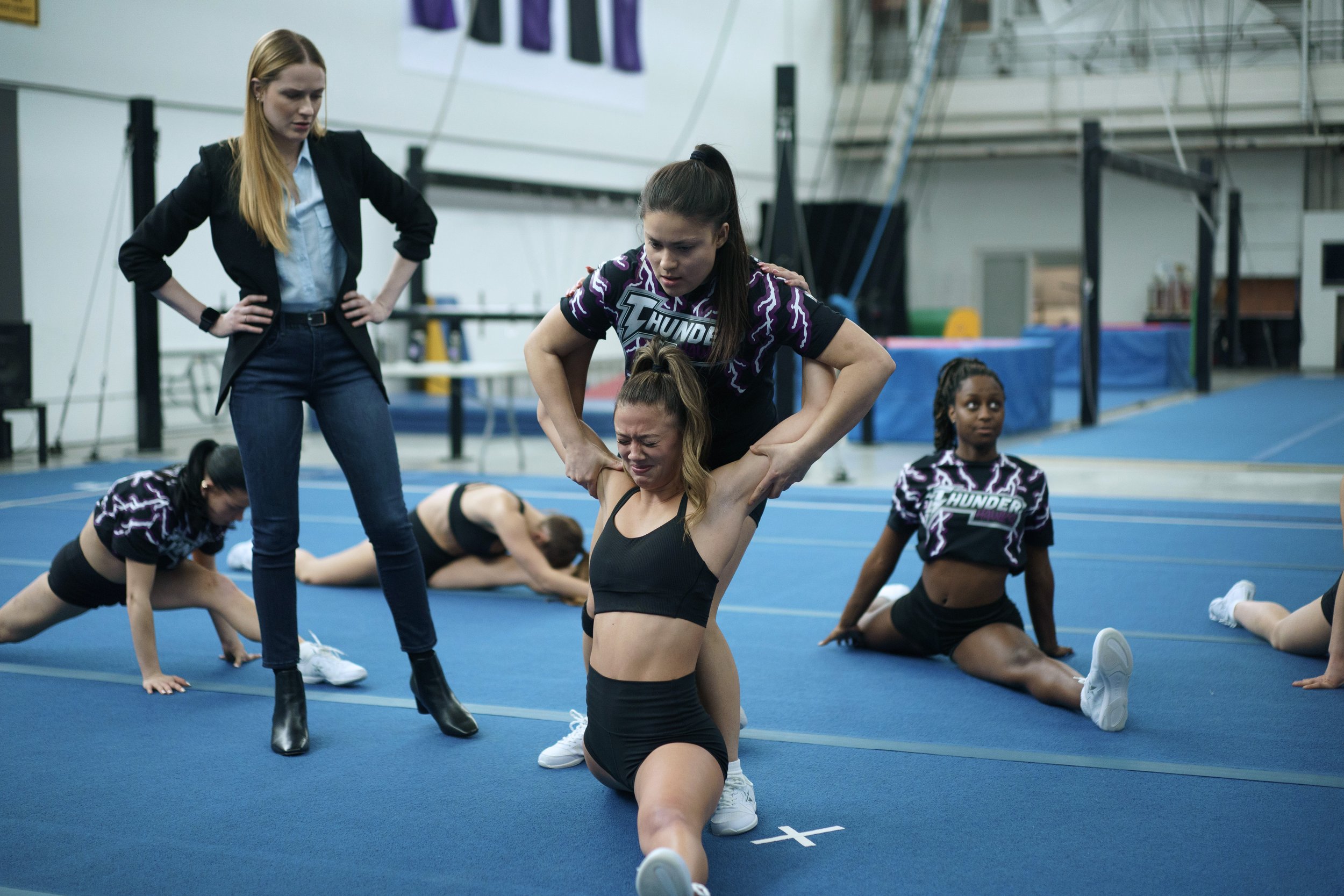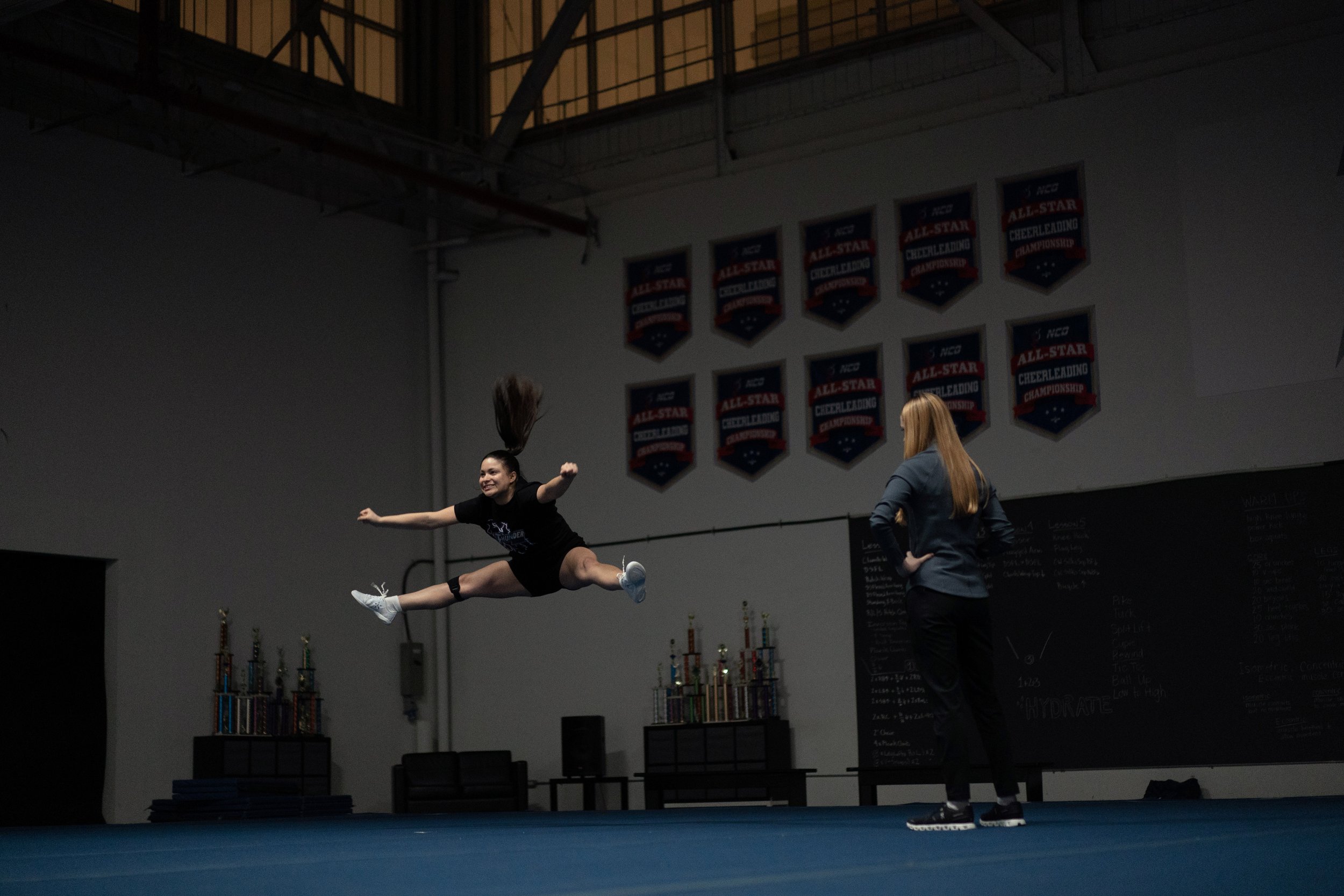‘Backspot’ Review: Energetic Cheerleading Drama is Hoisted by a Spirited Devery Jacobs Performance
NR
Runtime: 1 Hour and 32 Minutes
Production Companies: Page Boy Productions, Night is Y, Prospero Pictures
Distributor: XYZ Films
Director: D. W. Waterson
Writer: Joanne Sarazen
Cast: Devery Jacobs, Kudakwashe Rutendo, Noa Diberto, Evan Rachel Wood, Thomas Antony Olajide, Oluniké Adeliyi, Wendy Crewson, Shannyn Sossamon
Release Date: May 31st, 2024
TIFF 2023 Coverage | In Theaters & Demand
Overachieving cheerleader Riley (Devery Jacobs) auditions for the competitive cheer squad of her dreams, the Thunderhawks. She, her girlfriend Amanda (Kudakwashe Rutendo), and their friend Rachel (Noa DiBerto) all get accepted. Upon entry into their new gym base, their coach, Eileen McNamara (Evan Rachel Wood), puts the thunder in the Thunderhawks, pushing them through rigorous, stress-inducing, body-breaking training. Riley's perfectionist attitude is thrown into the spotlight as her unhealthy desire for validation from the strict Eileen tests her relationship with Amanda and herself.
Backspot primarily functions as a character piece about a compulsive perfectionist athlete obsessed with being the best in their class, no matter how hard it hurts. It's an archetype we’ve seen before, notably in the 2010s with Whiplash, I, Tonya, and Black Swan—dense psychological studies that leave you simultaneously fascinated and disturbed by the protagonists' unhealthy obsession. Backspot is the lightest, queerest (sorry, Aronofsky), and most Canadian of those features. It is so Canadian that the theater chain Cineplex is a location in the movie. Characters are wearing branded uniforms and everything. Even though it's lighter in tone, D.W. Waterson's direction holds steady ground by harshly depicting the competitive cheerleading environment.
The film immediately backflips the viewer into its hectic, intense atmosphere in its opening minutes. The first few frames feature a hurried camera following a cheer squad's practice session and all the adrenaline. Their direction dazzles during cheer sequences, with the camera focused on the members performing their choreography. With the already established tense air, every cheer sequence is pulse-pounding, making you hope they don't bust their behinds during their solo cheers.
When Riley and Amanda are under Eileen's girl-boss wing, Waterson strays from sugarcoating how physically and mentally draining cheerleading is for teenagers. They're not afraid to display bloody cuts, gashes, and purple sore spots on their bodies. God forbid someone falls from the top of the pyramid to the ground, for it goes full body horror, putting broken bones on display. Eliciting shocked reactions through frickin' cheerleading is a fantastic feat. Some shots had me turning from the screen.
Riley’s full of willpower and focus in every extreme closeup shot before giving her all in her routine, even before Eileen puts her into the big leagues. Thankfully, Joanne Sarazen’s screenplay strayed from being a "Whiplash but for the teen girlies" clone. It's designated to deconstruct Riley's obsessive behavior, correlating her endlessly determined attitude to her self-image struggles. The film addresses how beauty standards and a slim body shape play into the sport. Riley suffers from trichotillomania, constantly pulling out her eyebrows.
There's a refreshing queer joy amidst the pressured environment. Many light-hearted scenes between Riley and her girlfriend, Amanda, are adorable. Waterson captures their romantic relationship in a cute, playful dynamic—from the pair belting out Legally Blonde The Musical songs as Riley drives through the suburbs to being intimate in Riley's attic. Kudakwashe Rutendo and Devery Jacobs effortlessly capture their characters' youthfulness in their secluded moments. Their strong onscreen chemistry makes their relationship more riveting when the Thunderhawks' toxicity affects them.
Backspot gets a bit Whiplash-y in Riley's hero worship complex, always seeking to impress the cold Eileen to the detriment of others and her well-being. Lez-be-honest, if Evan Rachel Wood were your coach, of course, you'd break every bone in your body to make her smile. Those practice session scenes with Eileen are intense as Wood's fierce, take-no-shit demeanor vacuums all life out of the room. While Wood is great, Eileen's inconsistent morality lines remove any weighty stakes for Riley. She's never at a ten in verbal abuse. She's at a four, if not a five, due to how often they wobble with her humanity.
Actress and producer Devery Jacobs sticks the landing in her fearless leading performance. Despite Riley's escalating obsession, she displays 100% confidence and dedication to the cheerleading craft. Jacobs' active, upbeat energy and fiery reactions capture the impressionable mindset of her adolescent character. Also, she did all the cheerleading herself, which is beyond impressive.
While Backspot is entertaining, it rarely makes meaningful commentary on cheerleading outside of its brutal depiction. As interesting as Riley is as a protagonist, her traits hit the obsessed athlete archetype boxes with base-level execution, mostly elevated by Devery Jacobs' performance. Thanks to how slight the surrounding characters are, there's no real sense of stakes or threat in her being cut from her backspot position. Even when her relationship with Amanda gets murky, it’s single-digit minutes before they make up. Yay for positive queer love representation, but boo for the hollowness of the already monotonous scenery. Riley's inner life is also barely explored outside of two scenes between her and her mom (Shannyn Sossamon) that oddly illustrate Riley's traits as hereditary.
As enjoyable as Backspot's familiar ride was, it all came apart in the final act. Coach Elieen has these girls breaking their bones for a national competition. The routine itself sizzles so hard that if I were a judge in the audience, my board would say "anticlimactic" in all caps. The film ends on an unearned Hannah Montana sour mark as it tries to tie itself up in a bow, with the lead getting the best of both worlds that, in this case, sends a wrong message after all the physical abuse the film explicitly showed.
As superficial as an overachiever sports flick might seem, Backspot manages to be genuinely entertaining due to the dynamic direction of D.W. Waterson and Devery Jacobs' extraordinary performance.









